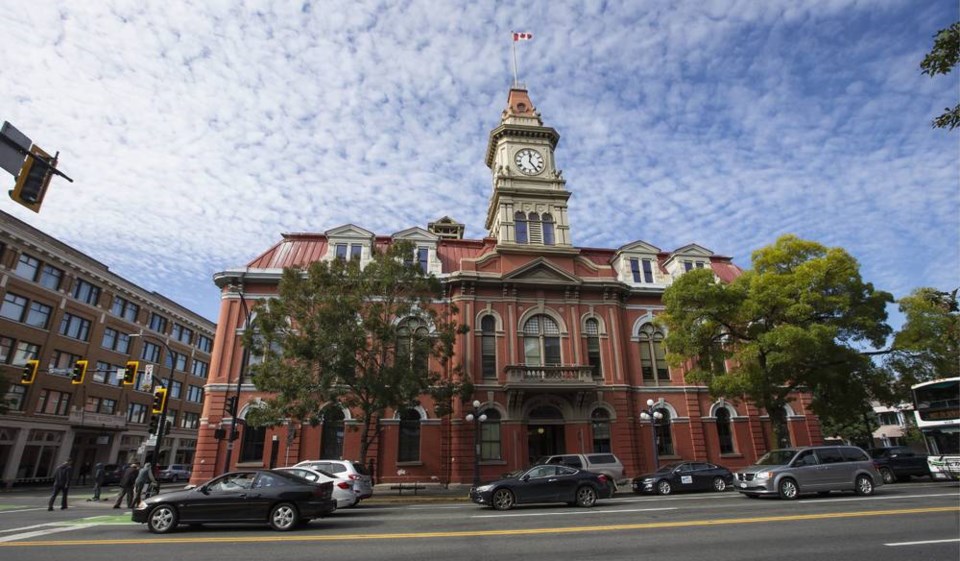A commentary by a former Times Colonist reporter.
If Victoria councillors are ever wondering why big new initiatives like banning cars from Clover Point are met with such pushback, they might consider the old adage: “If you take care of the small things, the big things will take care of themselves.”
After years of increasing disenchantment with the city’s downward spiral and frustration with its seeming indifference to the basic needs and desires of taxpaying residents, my wife and I decided to relocate up-Island.
We sold our Fairfield townhouse and found a place to rent in Shawnigan while we house-hunt.
Knowing it would be prudent to rent street parking for the moving van, I called through to the city in advance. I was quickly connected with the Engineering Department.
No problem, said the helpful person on the other end of the line. I could rent three parking stalls for the day at $15 per.
Great, I said. Let’s do that.
Ah, but if I wanted the three spots signed by city crews, that would be another $45, I was told.
OK, I thought to myself, there’s no point in renting a stall without signage so it’s not $15 a stall, it’s $30 a stall. Why don’t you just say that? I wondered.
I quickly dug out my Visa to pay.
“You’re all set. The parking has been reserved,” I was told. “You will be getting a call from someone from our Finance Department in a couple of days to collect your credit card information.”
“Really? You mean you can’t take the credit card info?”
“No, that’s done by Finance,” I was told.
“OK,” I thought. “If that’s how you do it, that’s how it’s got to work.”
Sure enough, a couple of days later as I was driving my car loaded with stuff to put into storage, a call came through from the city’s Finance Department.
Another helpful staffer wanted the credit card info for the parking. How convenient is that?
I pulled over, dug out my wallet, gave the information and was assured we were good to go.
A follow up email, with a printable PDF of the permit, quickly arrived. It would be a good idea to print a copy of the permit for the movers to put on their dash, I was told.
Other than whining to a few friends about the convoluted, two-stage approach to the permit process, I didn’t give the matter much more thought – that is, until the night before the move when the parking signage didn’t go up.
In fact, the signs didn’t ever go up — which was worrisome as ours is a very busy street for parking. When the moving van arrived, it managed to squeeze into a space in front of the townhouse complex but didn’t have the room for its ramp as a car was parked in one of the stalls I had rented.
(My thoughts just kept going to the advice given me by the moving company rep: “You’re paying us $120 an hour so any steps you can save our guys saves you money.”)
Upset, I called the city Finance Department for a refund. My call was answered and, as I should have expected, was quickly redirected to Engineering. There I got a recording asking me to leave a message. I did, while doing my best to stay calm.
I soon received a call back from someone in Engineering who was at a loss to explain what had gone wrong. Sometimes the signs are stolen in the night, he offered.
No, said I, I had checked. They were never put up.
Absolutely, I would get a refund, he said. He would forward a message to Finance, and I could expect a call back from them within hours.
Sure enough I did get the call from a cheery person in Finance who said she had been instructed to refund the parking permit fee because the permit “had been cancelled.” She needed my credit card information.
It had been cancelled, I explained to her, because the signage had never been erected.
“Oh dear,” she said. “That must have been frustrating. I’ll make a note of that because we like to track those things.”
Later, after the movers were all loaded up and pulling away for Shawnigan, I watched as the van drove down Richardson Street and then turned right to head north on Vancouver Street.
I gave my head a little shake, knowing they would be forced to turn that massive truck around within a block and backtrack to Fairfield Road and then to either Quadra Street or Cook Street in order to find a way north as the city has blocked off Vancouver to through traffic as part of its ever-expanding bike network.
“There goes another 50 bucks,” I thought. After all, I was still paying the movers $120 an hour.



